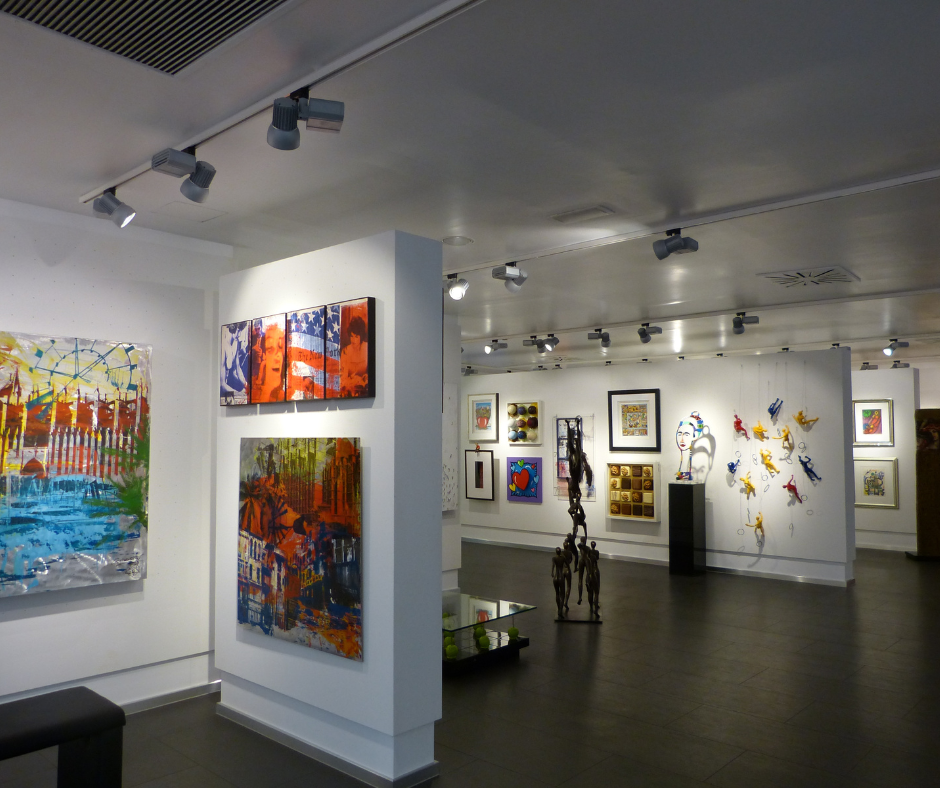HOW DOES MY COMMUNITY BENEFIT FROM ARTS & CULTURE?
Investment in arts and culture is a smart choice for municipalities looking to strengthen their economy and create a sense of belonging for its residents, making it one important consideration as you cast your ballot in this fall’s municipal election.
Arts and culture, in all of its forms, brings a myriad of benefits for those who engage in it - whether they be the artists themselves, or those who consume arts and culture. The arts provide opportunities for education, inspiration, entertainment and connectedness. They create opportunities for personal expression, exploration of tough issues, and dialogue. Engaging in arts and culture can improve mental health, as has been witnessed during the COVID-19 pandemic. And the arts can also provide meaningful careers.
Benefits to the economy & tourism
A strong arts and culture sector will inevitably benefit the economy of a city or town. One way this is achieved is through opening up employment opportunities that are related to arts and culture. More job opportunities for artists means more people contributing to the economy. Offering opportunities for the arts and culture sector can also influence who wants to live in that municipality. There is a large percentage of the population that considers themselves an artist in some form. Ontario is home to more than 66, 000 artists, 42% of Canada’s artists, almost twice as many as any other province (Hill, 2019)¹. Statistics Canada states that products in the arts and culture industry account for $27.5 billion of the GDP in Canada (Provincial and Territorial Cultural Indicators, 2021)². Keeping these products in your city or town is going to benefit everyone in it, if artists are encouraged to sell their products in their hometowns that money stays in the community.
Tourism is a key element to building a bustling community and one of the best ways to draw tourists is to showcase the arts and culture your region has to offer. More people visiting your community means more money flowing in, and helping small businesses. Family-owned businesses, especially in rural communities, heavily rely on tourism. Without tourists, those businesses cannot survive. Drawing visitors in through events like studio tours gets new people to enjoy time in your town, spend money there, and share the word with others who will visit as well.
youth and the arts
Children and youth probably benefit the most from a thriving arts and culture sector. Learning from a young age instils a love for the industry much deeper than many adults can experience. Getting youth of your town interested in the arts will pay off in the future as well. Building generations of residents who care about the community and the arts and culture it offers will ensure it continues for decades to come. The children who get involved in the theatre could end up running a theatre program in the community. Teenagers who enjoy painting could end up opening a gallery right in the community they grew up in. The arts are also a great outlet for kids who have a hard time connecting with people, struggle in school, or face challenges in their home life. Having a creative outlet can benefit these kids, giving them a positive sense of self-worth and allowing them to express their feelings in a wonderful way.
Given the wide array of benefits of a thriving arts and culture scene, it’s important to evaluate candidates in the municipal election according to their knowledge and support of the sector. Elected officials have a vast amount of influence on how “arts-friendly” a municipality is - from decisions regarding investment in arts and culture, to zoning and development choices, to bylaws and regulations impacting the arts. Whether you are an artist or just a fan of arts and culture, an election offers a good opportunity to ask candidates what they plan to do to support the arts in your community.
¹https://hillstrategies.com/resource/artists-in-canadas-provinces-and-territories-in-2016/
²https://www150.statcan.gc.ca/n1/daily-quotidien/210527/dq210527b-eng.htm



